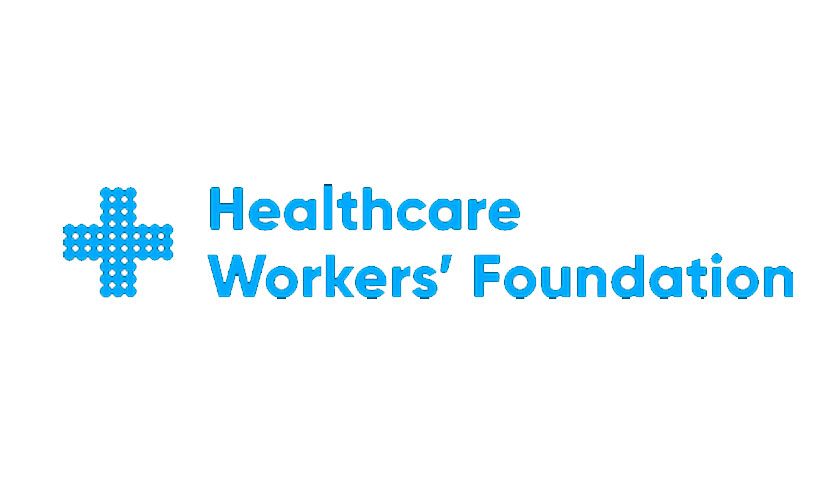The Healthcare Workers’ Foundation (HWF), the charity started by and for healthcare workers in the midst of the pandemic, shares harrowing realities of three healthcare workers who have – like all frontline staff –battled with numerous professional and personal challenges since the pandemic struck.
With a cocktail of issues currently impacting the livelihoods of NHS staff – ranging from the impact of omicron, staff shortages, treatment backlogs, extreme and widespread exhaustion, squeezed wages and racism – healthcare workers have also reported experiencing verbal and emotional abuse from patients who too have been impacted by the systemic challenges introduced by the pandemic.
Alarmingly, many workers claim these realities have resulted in a significant decline in their mental health, with a recent study reporting that the scale of PTSD currently experienced by healthcare workers is akin to soldiers who fought in the Afghanistan war[1]. Further research also reports the shocking truths behind the NHS worker mental health epidemic, revealing that one in three ICU nurses suffering from PTSD[2], the traumatic condition that is known to have long-lasting, detrimental impacts on an individual’s personal and professional wellbeing.
Three healthcare workers share their stories following two years of tireless work on the frontlines:
- Emily, an A&E Receptionist, said: “Sadly working on the frontlines has meant we are met with difficult situations and interactions with patients who are frustrated by the system. I am regularly verbally abused on shift by patients who refuse to wear a mask, I escort relatives round to the family room in resus to be told their loved one has died, I have to ask parents, bringing their new-born baby in because they were struggling to breathe, to choose which parent will be taking the baby in as only one parent is allowed. For frontline workers this is not a film; this is not a conspiracy or some Netflix documentary, and it certainly is not a joke. I myself have suffered from flashbacks and nightmares – I feel as if I am on a ventilator in my nightmare and I wake up gasping for breath in a panic as the doctors pull my endotracheal tube out of my throat.”
- Julia, a GP (GPST3) in London, shares: “Thankfully, we can now see a light at the end of the tunnel as far as the pandemic is concerned, but there is one thing that won’t be going away any time soon: the emotional exhaustion of thousands of healthcare workers. I have already seen a large number of my colleagues take leave due to stress, burnout and mental health problems. As one pandemic has settled, another has emerged.”
- Elizabeth, a Staff Nurse in Cumbria, said: “Unlike some sporting games – where the games are entirely cancelled if there is inadequate team attendance – in the NHS if 50% of staff are off one shift…. we carry on. If 25% are off the next shift… we carry on… 50% are off the next shift…. guess what, we carry on. The NHS staff need help, it’s a dire situation.”
Emily, continued: “One of the biggest things that has helped me during the pandemic has been receiving counselling. In January 2021 my mental health deteriorated – I began to neglect myself both physically and mentally and I could not see a way out of this horrible place. Counselling really saved me. The HWF has teamed up to offer hundreds of counselling hours to NHS staff who need that support irrespective of their job title. I cannot even think of where I would be now had I have not received counselling.”
While it’s been widely reported that the Great Resignation across the NHS is inevitable[3], ensuring that healthcare workers have basic access to support – whether it’s mental health counselling, bereavement sessions, childcare grants and more – will ensure their wellbeing is maintained and so they can continue providing the best levels of care to patients.
Also commenting on the current landscape, CEO of the HWF, Julie Child, said: “It’s extremely upsetting to hear that so many healthcare workers are suffering – both outside of work and while on the job. This pandemic has introduced an unfathomable amount of issues that our communities will feel for years to come, and what healthcare workers need right now is support, action and hope so that they can do their best as the NHS embraces a new chapter.
“Since inception, the charity has raised more than £3 million thanks to the public and our partners. We are actively engaged with trusts and hospitals across the country to ensure their teams can leverage our services, and we are always available to frontline staff – new or known to us – to provide them with help. With the pandemic rippling through society, it’s crucial that healthcare workers are equipped with the resources needed to ensure they can perform their best. No NHS worker is alone – we are here to help and our services are available to every healthcare worker across the UK. We urge you to contact us if there’s anything we can do to support you during these challenging times.”
If you are a healthcare worker and would like to seek support from HWF, please contact HWF here, or if you’re a trust and would like to partner with HWF, please email contact@healthcareworkersfoundation.org. To donate to HWF to support NHS staff across the UK, please do so here. 100% of all funds raised will go towards HWF’s welfare and wellbeing services.
